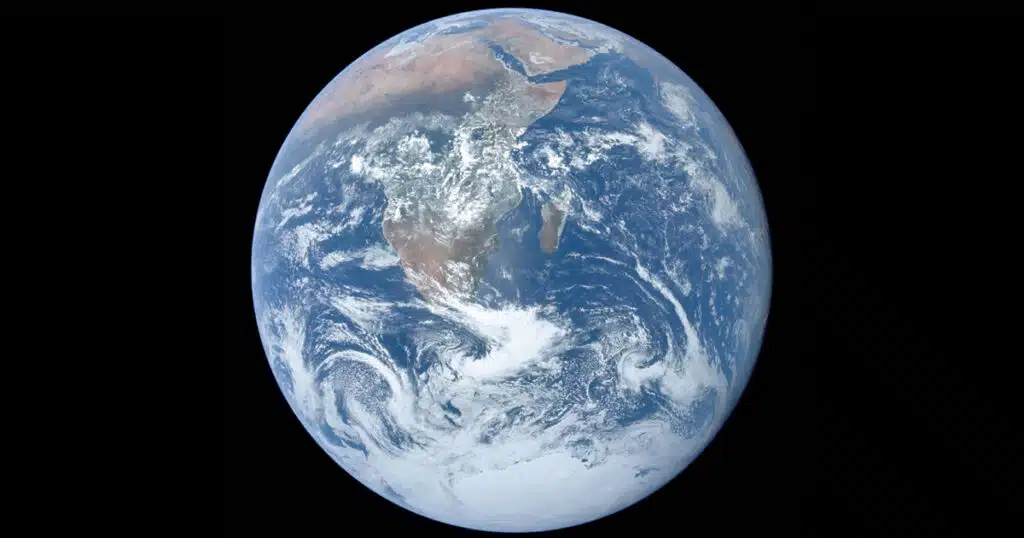
Biden Planning to Spray Aerosols Into Atmosphere To Combat Climate Change
In a seeming attempt to jump-start enthusiasm for climate change mitigation during the waning days of the United Nations’ latest annual climate summit, last month’s COP27 — Conference of Parties 27 — in Egypt, which was generally ridiculed as a lackluster gathering that produced few meaningful results, the Biden administration announced a proposal to block the warming effects of sunlight by spraying aerosols into the atmosphere.
The White House said in a statement the aerosol idea is a leading strategy to be examined during a five-year study of geoengineering, a highly controversial approach known as solar radiation management, that employs technologies and innovations to artificially modify the globe’s climate by reflecting solar radiation away from the earth. The straightforward assumption is once the sun’s rays are reflected, there’ll be less heat and the planet’s overall temperatures will decline.
Though only revealed in October, Biden’s climate mitigation initiative has been in the works for many months and signals the first federally coordinated research effort of its kind by the United States.
Experts widely believe the study could invite more funding and research into the feasibility, benefits and risks posed by climate interventions — while at the same time bolstering the perception of geoengineering is an appropriate and important area of research as global climatic changes evolve.
The 2022 federal appropriations act, signed by President Biden in March, directs his Office of Science and Technology Policy to coordinate exploration of aggressive climate interventions, in partnership with the National Aeronautics and Space Administration, National Oceanic and Atmospheric Administration and the Department of Energy.
Geoengineering has long been a taboo topic among scientists, with notable groups withing the scientific community arguing it should remain off-limits dues to questions about potential environmental side effects and concerns the impacts of such efforts will unevenly affect different parts of the globe.
The desperation driving research into geoengineering is understandable, Joel Clement a senior fellow at the Harvard Kennedy School’s Belfer Center for Science and International Affairs and a senior fellow with the Union of Concerned Scientists, wrote in an opinion piece for The Hill, because the world generally faces a great amount of uncertainty surrounding the changing climate, “but at a time when we know exactly what we must do, and the only lacking element is political will, it seems incredibly foolish to invest in and conduct experiments that, at best, only distract from the goal and at worst, create dangerous dependencies and worsen inequities…These concerns are widespread. In fact, very few scientists…believe that solar geoengineering should ever be deployed. Nervous about open-air geoengineering, the UN Convention on Biological Diversity established a moratorium back in 2015, with 196 countries signing on.
“Climate change itself is a result of massive solar geoengineering. With a rapid and concentrated release of greenhouse gas pollution we’ve tinkered with our atmosphere to such a degree that we face catastrophic impacts of a changing climate,” Clement continued for The Hill. “We have the technology and capacity to reverse that damage and clear a path for civilization to live without the ominous threat of planetary-scale disaster. That work must begin in earnest right away. Investing instead in a complicated and extremely risky Band-Aid — one developed in wealthy countries with a vested interest in the economic status quo — trades one ominous planetary threat for another, in a most injust way.”
Meanwhile, a coalition of 60 top climate scientists and governance scholars from throughout the world have banded together in calling for an “International Non-use Agreement on Solar Geoengineering.”
In an open letter posted at its website, the group lists five core prohibitions and measures it asking the plant’s community of nations to accept:
1. The commitment to prohibit their national funding agencies from supporting the development of technologies for solar geoengineering, domestically and through international institutions;
2. The commitment to ban outdoor experiments of solar geoengineering technologies in areas under their jurisdiction.
3. The commitment to not grant patent rights for technologies for solar geoengineering, including supporting technologies such as for the retrofitting of airplanes for aerosol injections;
4. The commitment to not deploy technologies for solar geoengineering if developed by third parties;
5. The commitment to object to future institutionalization of planetary solar geoengineering as a policy option in relevant international institutions, including assessments by the Intergovernmental Panel on Climate Change.
The open letter continues that the proposed international non-use agreement “would be timely, feasible, and effective. It would inhibit further normalization and development of a risky and poorly understood set of technologies that seek to intentionally manage incoming sunlight at planetary scale. And it would do so without restricting legitimate climate research. Decarbonization of our economies is feasible if the right steps are taken. Solar geoengineering is not necessary. Neither is it desirable, ethical, or politically governable in the current context.”
Back in February of 2021, Scott McKay, publisher of Rvivr.com, wrote in thehayride.com — another conservative revivalist site he created — that solar geoengineering was one of several myopic climate mitigation ideas heavily-funded by Microsoft’s billionaire founder Bill Gates.
Sure, McKay said, a rise in global temperatures would be uncomfortable and concerning, but “creating an artificial Nuclear Winter” would be worse.
“More people freeze to death in extreme cold weather than die of heat-related causes when it’s hot, you know,” he noted.
“When we’re in the middle of the worst cold snap much of the country has seen in decades,” McKay wrote, “finding ways to check this increasingly nutty bull in a china shop begins to become an urgent necessity.”



